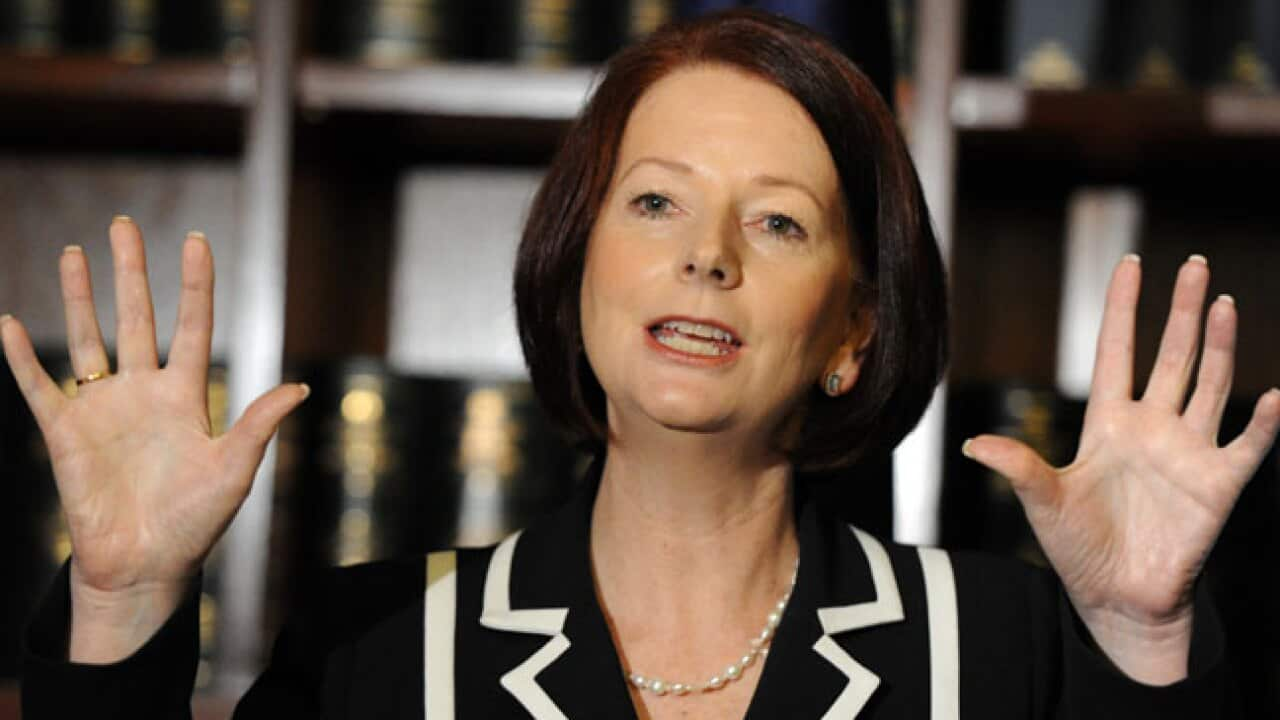The proposal replaces a deal Gillard's predecessor Kevin Rudd reached last year with all states except Western Australia.
"The federal government is prepared to contribute half of the costs of growth in public hospitals," Ms Gillard told reporters in Canberra.
"That is, we will contribute 50 cents for every new dollar that is needed for public hospitals."
She's acknowledged that the changing political complexion of state governments has prompted the policy change.
Ms Gillard says the financial benefit of the arrangement for states and territories is 16.4 billion dollars to the end of the decade.
"Which is roughly equivalent to what they would have received through the COAG (Council of Australian Governments) discussions last year," she said.
In return states and territories would be asked to commit to transparent new arrangements for public hospital funding services.
"I will propose that the federal government, states and territories contribute their share of hospital funding and growth funding into a single national pool," Ms Gillard said.
A national body would report on the number of services paid for by the national pool.
"You will be able to see very clearly money in, money out from the federal government and state and territory governments."
Ms Gillard said she would be proposing structural reform with funding flowing on the basis of an efficient price for services.
"That efficient price would be set by an independent body a bit like the Reserve Bank, independent of the federal government, independent of state governments," she said.
"That pricing of hospital services will help us identify underperforming hospitals, it will help us identify best-performing
hospitals."
Underperformance could be remedied and best practice shared, Ms Gillard said, adding she would insist on standards for treatment of patients.
"This is the same reform style approach I brought to education where we were very focused on quality and increasing standards," she said.
Ms Gillard said the government was committed to making Medicare Locals, a network of primary health care groups, more representative of their local communities.
"I have been concerned some of the Medicare Locals are too large in size, we will be creating more Medicare Locals," she said.
The number of Medicare Locals that start in the next 12 months will be increased from 15 to 30.
Their delivery would also be speeded up, and they would be given funding to deal with after-hours services.
"It's a big problem that people end up in hospital emergency departments because they can't find care after normal business hours," Ms Gillard said.
Gillard said the commonwealth now provided about 38 per cent of funding for public hospitals.
Under her proposal that share will increase to 40 per cent by the end of the decade, and to 44 per cent the decade after that.
"Inevitably stepping up to 50 per cent of growth, you are dragging the base up behind you," Ms Gillard said.
According to Prime Minister Gillard, Western Australia and Victoria's refusal to agree to the previous plan were obstacles to the Rudd plan.
The new plan would avoid states "blueing" about money, Ms Gillard said.
"What of course you don't have is the merry-go-round of GST money."
Ms Gillard would not be drawn on whether the new plan was better than Mr Rudd's.
"This vision is standing on the shoulders of what has gone before," she said.
Ms Gillard said there would still be the need for some block funding.
"There are some rural and regional hospitals, some special circumstances where activity-based funding doesn't meet the needs," she said.
Ms Gillard warned there would be no new federal money without reform.
"There will only be additional money available for states and territories, the growth money they seek, if they reform.
"There are no blank cheques here."
Ms Gillard said any new funding arrangement would need to be approved by parliament.
"Pricing authority requires legislation, the creation of the funding pool requires legislation," she said.
But legislation would not be needed to change GST arrangements with the states.
"We do not need to pursue the GST legislation which has been in the parliament and the subject of discussion," she said.
Share

